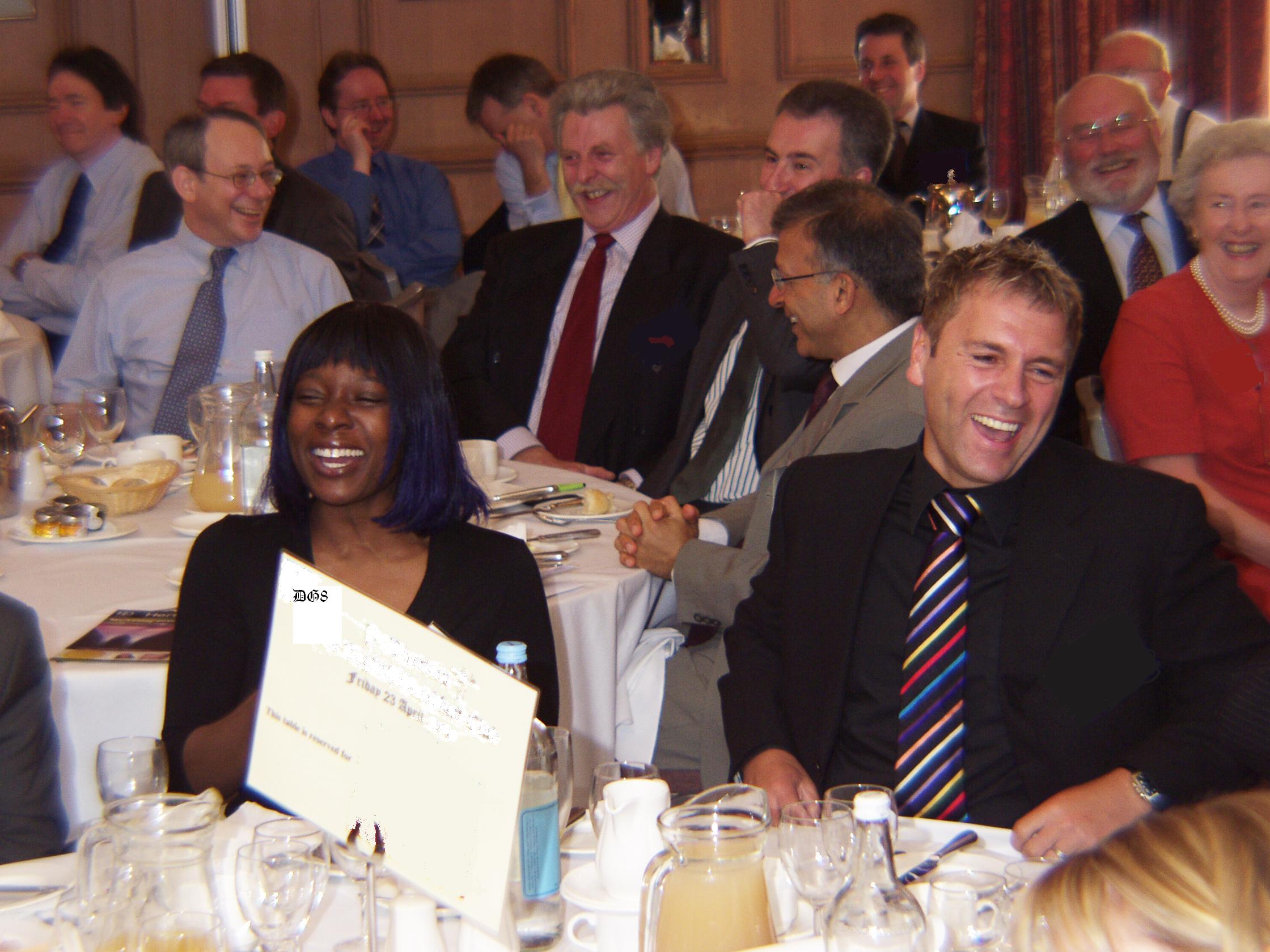Blog Archives
Details of Olympic Opening Ceremony Revealed
Last night I attended the Opening Ceremony rehearsal. I guess you’ll be expecting a full lowdown on the show and I promise to tell you all about it in this blog when I’ve come down from cloud nine on Saturday morning. Except to say that it is a FANTASTIC show and you won’t want to miss it!

Chaos behind scenes
Half an hour before the rehearsal started my neighbour received a text from someone in the cast of thousands to say that they were all “very nervous and that there was chaos behind the scenes”. When it began, you wouldn’t have known. All the team’s rehearsals over the last few weeks came together and produced an end result that I will never forget for it’s brilliance.
Hundreds of mistakes
Dountless there were some mistakes, probably hundreds, but the end result was stunning and that’s what was important. The message for business teams and managers is that when delivering a complex result there will be mistakes along the way, individual teams may view the thing as being chaotic, lacking in management leadership and full of errors but what matters is that the result looks superb to those watching.
It’s made the start of my Olympics come sooner and if the sport lives up to the opening ceremony then wer’re in for two weeks of real fun.
.
The Disaster of Team Decisions
Last week I was talking to a team manager who described to me a team descision and them ended up by saying:
“Everyone seemed to agree with the decision but when people came to act on it each person had a different idea on the action we agreed upon or reserved the right not to implement it”
False Consensus
Implementing team decisions can be difficult. Particularly when the members of the team are senior in status or are members on the basis of voluntary membership (they can leave and take their ball with them without any reprimand). I know this as “False consensus”. The problem for the team manager is that to try to play amateur Psychologist to solve the situation is likely to make the situation worse NOT better.
Shared Values
Consensus in team decisions is a powerful goal in decision making and often the reason for team meetings in the first place. Where the team members know each other well, share the same values and spend considerable time discussing issues with each other then it’s often easy and preferable. But where these factors are absent the team leader often has to develop them.
Only the future can deliver results
Last week I was talking to a Sales Director about recruiting people for his sales team.
I looked through the job specification to see that almost every phrase was unrelated to sales.
“To submit monthly sales forecast”
“To attend weekly meeting”
and so on
Then there were the skills required:
“Good communicator”
“Five years sales experience”
I pointed out that top talented sales people would be turned off by the job descriptions because they were barriers to making sales.”Must be a good communicator” was a wasted phrase because to have become a top talent salesperson the individual must have excellent communication skills.The descriptions were bland and unexciting
“What you need is something that will draw in top talent, not put it off”
Was my advice and together we went about restructuring the documents. I was keen to show that job descriptions and specifications should be future focussed, attractive to the target candidate and avoid applications from candidates that were obviously NOT suited for the role.
Result:
Together we rejected the bland and unexciting language and replaced it with the following:
“The successful candidate will have penetrated two new clients and concluded half a million pounds worth of sales within twelve months of assuming the role”
Other phrases were designed to reflect the new focus and today he phoned me to say that a candidate had complimented him on having an “exciting and easily understood job role”.
For more info on effective job role design tel: (44) 01727 838321
A spring in my step all day today
Found this feedback on a conference keynote I give and it’s put a spring in my step all day
“I have seen Stephen speaking on more than one occasion and I’m a strong advocate of his material.
The talk is fun and engaging with a deft touch. Mainly though I think the content is vital.
It has a demonstrable ROI and is hugely relevant in this time of constant change.
I would recommend it to anyone serious about the long term success of their business”
Caspar Berry

66% of hiring managers regret their decision
This week I’ve been talking to two businesses that are expanding about their interview programmes.
66% of hiring managers regret their decision
Both were surprised when I told them that 66% of hiring managers regret their interview based decisions. When you consider the vast sums of money that organisations invest in their recruitment process one has to wonder what’s wrong. The problem is that, despite some having very prescriptive systems, most companies interview and select their new hires very badly. In fact around 40% of new hires go on to fail to deliver the results anticipated.
Top talent walks away
The biggest problem is that many managers will hire on whether they like the person. Then again I know of some interviewers that like to place a lot of pressure on candidates. Only a desperate job hunter will put up with this technique and most “top talent” will simply walk away. The lesson here is that asking questions to make them squirm is ineffective and counter productive.

Future tense questions reveals capability more effectively
Then again most questions are “past tense” and historical questions and a well prepared candidate can shine.
I always suggest asking most quwestions in the future tense that include actions that they would use in the job on offer. It becomes easier to to assess capability for the job that needs doing.
Much, much more revealing
Posing a top talent candidate a real and actual business problem and holding a discussion and debate with them using a white board to record detail and thought processes will reveal much more about “thinking, compatability and ability” than just posing questions. It may take longer, it may be less structured than you currently use but it is also likely to be much, much more revealing.
Lighting Customers up
Over the past two weeks I’ve really enjoyed working with some great professionals and it prompted me to think what it was that did that made contact with them so pleasurable.
The first was John Cassidy who I asked to take some new photos. John specialises in headshots and had photographed David Beckam, most of the English football squad as well as Royalty. Not only did John create some great results but he was a joy to meet, very engaging and took time to find out what I wanted. “It’s what you would expect” I hear you say and I would reply “True, but I have been photographed by people who didn’t light me up and consequently got poor results”.
With John I relaxed, enjoyed working with him and the results were better than I expected. He explained how to get the most from his time with him and how to prepare for the session. What to wear, grooming, and what to do the week, day and evening before the shoot. That was certainly new for me and a three hour photoshoot seemed like twenty minutes!


Then there was a twenty-one year old graduate who once swam for Team GB Youth team called James Hosrfall who’s set up his own fitness suppliment company. I will be talking about him in greater detail in another blog. Then there was the builder, the lawyer and ….
We may, often, complain about the standard of work in the UK and I know I do so regularly, but there’s an awful lot of great and knowledgable professionals about. Thanks guys for lighting me up!
Wickes, not building customer trust with me
It’s not often that I come accross a business that seems to have a business model guaranteed to upset the customer.
However, I have to give the prize to Wickes. The people who’ve got their name on it! and their branch in St Albans!
Some months ago I decided on a new kitchen. The old one couldn’t hold all the equipment, pots, pans and so on and anyhow it looked old fashioned. So I decided to splash out. After some research I fell in love with a modern look that Wickes had on display. Cream coloured cabinets with no handles, easy to clezan and perfect. The very personable salesperson came to measure up and produced a stunning 360 computer plan (see below) of what the kitchen would look like. I was really impressed and it was a few punds over budget, but when you fall in love…so what

Things started to go wrong
A deposit was paid and a date arranged for a fitter (i guess a subcontractor) to call to take exact measurements. It was then that things started to go wrong!
The fitter arrived and took exact measurement by waving his tape measure around and seemingly rounded up the measurements to give him wiggle room. (No sign of a laser measurer which he told me was less acurate than the old tape measure)
Then cam the add-ons. These are the bits priced up by the fitter and excluded by Wickes designers. Such as light fittings, tiling, electricals and so on.
Price escalated to over 20% more
After the fitter had added up all his extras the project price had risen by an additional 20% (I will admit it included a new fuse box).
I was then told that the work would take two weeks, Wickes had told me it would take one!
I was then left with no paperwork by the fitter except that half the additional payment would be required before starting. Had the fitter demanded more I had no proof that was the agreed amount
I still had to buy the tiles and light fittings!
Second thoughts
- I decided that the budget had been exceeded and so cancelled the contract within the 14 day cooling-off period.
- It was promised that the deposit would be repaid and I’m still waiting
- The regional manager phoned me to discuss my concerns and before I could call back (he called on the Saturday of the Jubillee holiday) and has since gone off on holiday without leaving another person’s contact details
Change the poor business model
I would suggest that Wickes consider changing their business model so as to conclude a SINGLE price for all the work and which includes all their sub-contractors work including tiling, light fitting and all other works. It might result in kitchens and possibly bathrooms being a bit more expensive at the quote stage BUT it would prevent the thoughts that sub-contractors were inflating prices and that the process was inefficient and in the end not worth the frustration.
Would I go back, not even for some plywood!
When the party’s over, what then?
I was having a discussion with a friend last night about the Queen’s Jubilee and the Olympics and how business is going to cope with the distruption to travel in London and the time off taken by staff. However soon the discussion moved to what happens when it’s all over
However, I wonder what happens after the party’s over?
Once the Jubilee and the Olympics are over will there be a sense of anti-climax.
Will people feel less enthusiastic at work as winter comes and economic troubles hit us again?
Or will one of the legacies be that a “Feel good factor” will last though the winter?
The challenge for business leaders
The challenge could be to assess the possible legacy on our team and how to keep the team motivated once the fun has ended.
It’s a challenge that managers should start to think about now.
How Important is humor in business?
in this current financial climate there’s a danger that we can lose our sense of humor (spelt Humour in UK). We have all becoming increasingly entertained by the incompetence of the Government when they all suddenly pretend that their favorite food is Cornish pasties. But how important is humor in business?
Business Humor?
I’m not talking about playing jokes or being silly at work. I mean the humor that attracts people to it and relieves pressure and stress of day to day work. That management encourages humor and is even prepared to initiate it rather than take itself too seriously.

Let me give you some examples:
Given the choice of two networking meetings which would look most attractive to join?
A group talking seriously with each other or another group that’s obviously having a good laugh and being entertained as in the picture above.
At work do you mix with the individual who’s always smiling or the person with a depressive nature who when he smells flowers looks around for a funeral.
Humor and success
In my experience I often note that the person with appropriate business humour skills, as well as qualifications and experience, is the individual that’s more easily promoted.
The problem with so many people at work is that they have great senses of humour, but manage to hide it well.
What are your experiences of humor and success and your favorite stories?
“That’s ruined MY day”
Most of my time is spent working with team managers to make their teams more efficient and productive. It’s work that gives me huge satisfaction and enjoyment. The process generally starts with a meeting where the team leader explains the problem/s. Then I’m asked what training, changes and so on I can deliver to “change the team around”.
Someone else’s fault
I comes as a huge surprise that often I’ll say “I’m not sure I can do anything to help them but I can do something to help you”. My reasoning is that it’s not unusual for team leaders to take poor team performance and people problems as someone else’s fault but with the results affecting them personally.
For example:Take the team leader who heard last week that a key member of staff was leaving, “That’s ruined my day, I’m getting a headache and going to take the rest of the day off!”
or
the team leader who’s heard that the team failed to meet target. “All the training and time I’ve given them and they do this to me!”
A lesson to be learned
One of the first lessons that team leaders need to understand is that the team hasn’t underperformed nor decided to leave to intentionally upset the leader. However, having said that the phrase “people don’t leave the company, they leave the boss” is true and underperformed teams is often due to poor resource being available.
That’s why I enjoy mentoring team leaders.